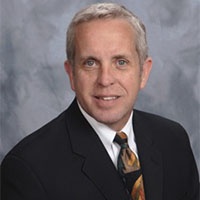Ann Arbor White Collar Crime Lawyer, Michigan
Sponsored Law Firm
-
 x
x

Click For More Info:
-
Law Office of Mark S. Guralnick
55 Madison Avenue 4th Floor Morristown, NJ 07960» view mapCriminal Defense Law Dedicated. Fearless. Successful.
Mark S. Guralnick and his legal team have helped clients throughout the USA and across the world by applying unparalleled dedication and hard work to each case.
800-399-8371
Thomas S. Piotrowski
✓ VERIFIEDCriminal, Estate, Felony, White Collar Crime, Misdemeanor
Thomas Piotrowski is an experienced and aggressive litigator who handles cases in and around the Detroit metro area. Since graduating cum laude from t... (more)
William Maze
Traffic, Domestic Violence & Neglect, White Collar Crime, DUI-DWI
Status: In Good Standing
Brian Joseph Prain
Domestic Violence & Neglect, White Collar Crime, Misdemeanor, Criminal
Status: In Good Standing
Mitchell T. Foster
Traffic, Federal Appellate Practice, White Collar Crime, Criminal
Status: In Good Standing Licensed: 32 Years
Steven I. Moss
Traffic, Deportation, Medical Products & Devices, White Collar Crime, Criminal
Status: In Good Standing Licensed: 43 Years
Ronald R. Gold
Juvenile Law, White Collar Crime, Criminal, Consumer Protection
Status: In Good Standing Licensed: 60 Years
James W. Burdick
Health Care Other, Health Care, Federal, White Collar Crime, Criminal
Status: In Good Standing
Kathleen Wilson Fink
DUI-DWI, White Collar Crime, RICO Act, Felony, Criminal
Status: In Good Standing Licensed: 37 Years
FREE CONSULTATION
CONTACT Mark Guralnick Morristown, NJ
Mark Guralnick Morristown, NJ AboutLaw Office of Mark S. Guralnick
AboutLaw Office of Mark S. Guralnick Practice AreasExpertise
Practice AreasExpertise

